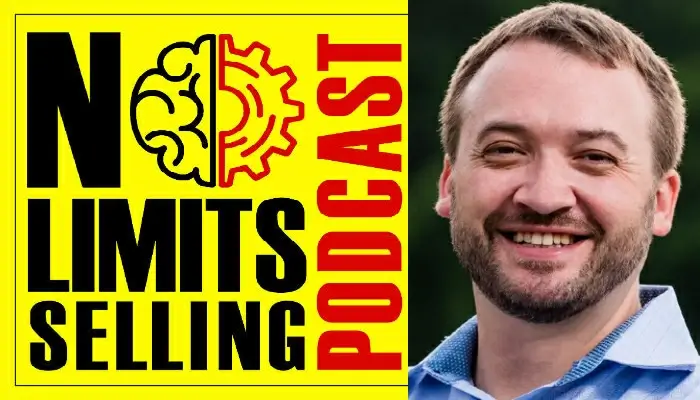Achieving Your Goals Through Mindset by Seth Dailey
Seth Dailey, CRS, is a successful REALTOR and entrepreneurial leader with two decades of professional experience in a variety of arenas. He began his career in financial consulting as a CPA, where he provided strategic insight to business owners and individuals.
Today, Seth leads the Baltimore-based brokerage, Keller Williams Gateway, with 175 agents and The Dailey Group, a highly successful real estate team he founded in 2005 with his wife, Alyce. This podcast is about achieving your goals through mindset.
Podcast Highlights:
- Change culture by shifting the frequency and the nature of conversations you have with your team
- Figure out what will make your life worth living
- Mindset is a key factor in achieving your goals

Contact Seth:
- Website
[EDITOR’S NOTE: This podcast is sponsored by No Limits Selling. It is a fun, fast-paced podcast that delivers hard-fought business advice that you can implement today to improve your sales and performance]
Interested In Our Real Estate Coaching Services? Explore Our Website: Link
Feeling Not Well Today? You Can Use Our Mindset Boosters App To amp Up Your Mood: Link
Find us on Social Media:
LinkedIn | Facebook community | Instagram
Like what do you listen to? Subscribe to our podcast!
Ready to become fearless? We can help you become fearless in 60 days so you accomplish more in your career Schedule A 15 min Call with Umar
Summary
Achieving Your Goals
They introduce the concept of appreciative inquiry, a method of asking questions that focus on the positive aspects of a situation. Dailey shares an example from his coaching experience, where he encouraged a team to focus on what they appreciate about their team, rather than what needs fixing.
The Influence of Beliefs and Stories
The conversation then shifts to the topic of beliefs and the stories we tell ourselves. They discuss how these beliefs can shape our perception of the world and how we validate it. They also talk about the importance of understanding that these filters exist and how they can be changed.
The Triad of Experience: Focus, Language, and Physiology
Drawing from Tony Robbins' teachings, they discuss the role of focus, language, and physiology in shaping our experiences. They suggest that the same statement can be perceived differently depending on our physical state, whether we're standing up or slumped in a chair.
Unpacking the Good: Applying the Positive Approach
Finally, they discuss the importance of applying the positive approach not only to negative situations but also to positive ones. They suggest that when something amazing happens, it's important to unpack it and appreciate the positive aspects, such as someone's care or a choice that led to a good outcome. This, they argue, is a crucial part of personal growth and development.
Conclusion
The podcast emphasizes the importance of understanding these filters and consciously choosing to change them to alter our perception. It also highlights Tony Robbins' teachings about the triad of experience: focus, language, and physiology, and how these elements significantly shape our experiences.
Questions & Answers
What is the main topic of the podcast?
What is appreciative inquiry?
How does the podcast suggest we can change our perception of the world?
What does the podcast say about the role of focus, language, and physiology in shaping our experiences?
How does the podcast suggest we should approach positive situations?
What does the podcast say about the role of focus, language, and physiology in shaping our experiences?
What is the overall message of the podcast?
Don’t miss this opportunity to transform your real estate career with one-on-one coaching. As an experienced real estate coach, I, Umar Hameed, am dedicated to helping you unlock your full potential and achieve your real estate goals. To learn more about who am I and my clients ↓
If you’re ready to take the next step, book an appointment with me today and begin your journey toward success in the real estate industry.
